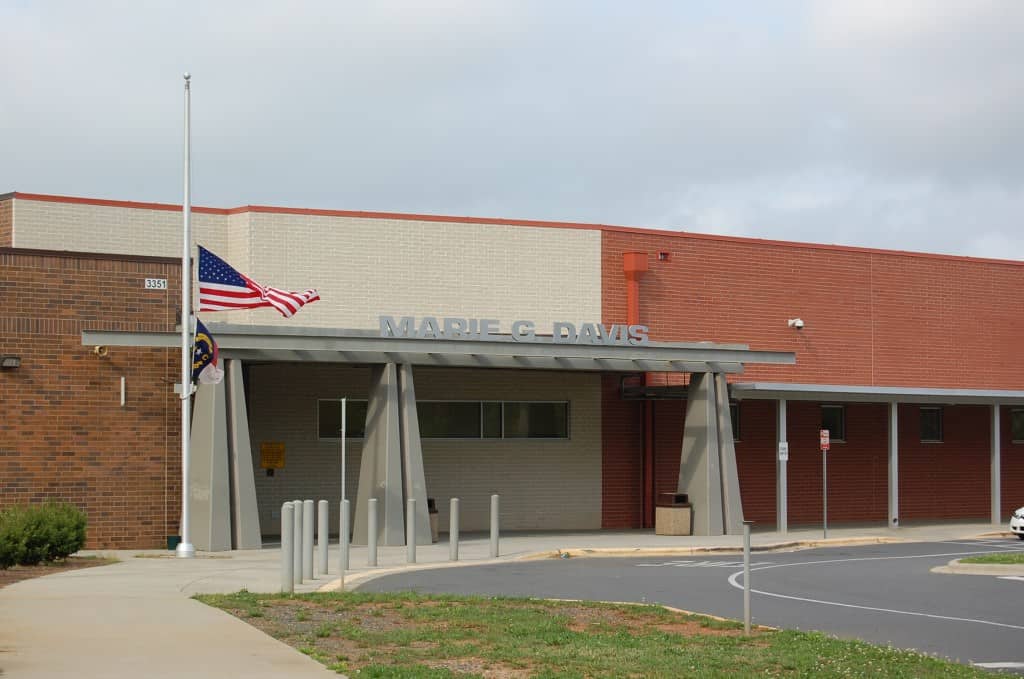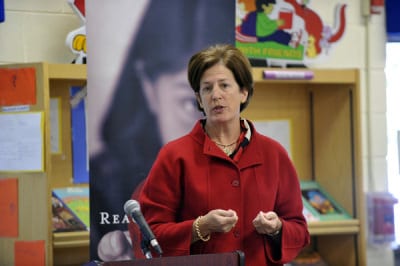
Big changes could be on the way for Charlotte-Mecklenburg Schools families and staff as the district moves to address concerns raised about its magnet school programs.
The school board is considering staff recommendations that range from major transportation shifts to new marketing campaigns. The proposals come in response to a review of CMS’ magnet offerings by Magnet Schools of America that said the district can do more to increase access, achievement, and diversity at magnet schools.
Staff provided the school board their “early and best thinking” last week; members will vote on November 10 on the changes that would take effect next school year.
Perhaps the most significant proposal calls for the elimination of so-called “shuttle stops” that required parents to drop children off at central locations where they would be met by a school bus. The shuttle stops were created during the recession to help CMS save money by cutting bus driver positons, the size of its bus fleet, and its fuel budget. But the MSA review said the shuttle stops were a barrier to some families.
“Shuttle stop transportation did limit opportunity for some families to attend magnet programs,” said Akeisha Craven-Howell, CMS’ assistant superintendent for school options, innovation, and design.
Returning to neighborhood bus stops for magnet school students may not be popular with all families, though, because it could increase the amount of time kids spend on the school bus. Superintendent Ann Clark acknowledged that fact, but said she was recommending the change in order to “create equal opportunity across Mecklenburg County for all students.”
The proposal could cost CMS as much as $6 million, though Clark said changes to magnet programs, student assignment boundaries, and fuel costs could affect that number. “There are a lot of unknown variables,” she said.
Additionally, CMS staff is recommending new magnet programs across the county.
Marie G. Davis Academy would receive a new high school magnet offering that would prepare students to be police officers, EMTs, or firefighters. North Mecklenburg High School would become home to a foreign language magnet. Programs for carpentry, design and fabrication, and the arts would pop up in center city and suburban schools.
Many of the proposed changes are designed to address a central concern of the MSA report — that CMS’ magnet schools don’t do a good enough job promoting equity across the community. “Not all of them reflect the district’s diversity,” Craven-Howell said. “Not racial diversity, not ethnic diversity, not socioeconomic diversity.”
The district’s staff also paid attention to MSA’s recommendation to do a better job marketing individual magnet schools. The review found that while demand for certain magnet school themes is high, that interest didn’t translate to all schools offering the magnet theme. For example, there may be a district-wide demand for foreign language programs, even though foreign language magnet schools in certain neighborhoods were full and others were underutilized.
“Magnet Schools of America found that not always is demand for a school related to the quality of the program, but perhaps to old history of a school or a school’s demography,” Craven-Howell said.
Families will have a chance to weigh in on the proposals at a public hearing on October 27 beginning at 6:00 p.m. at Friendship Missionary Baptist Church in West Charlotte. The changes, if approved, would take effect next school year and come against the backdrop of larger conversations about student assignment and academic equity in Charlotte.
School board members are working on “guiding principles” for a major student assignment review to be completed during the next year. Additionally, some members say high-quality magnet offerings — and enough of them to go around — are essential to the district’s competitiveness against charter schools, which continue to expand in North Carolina and Mecklenburg County.


